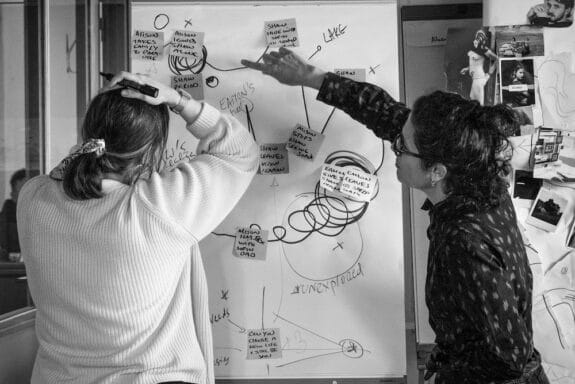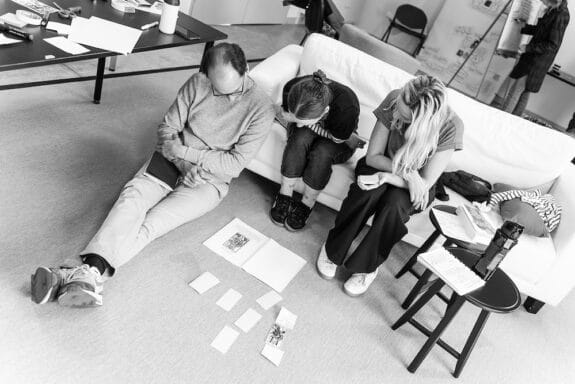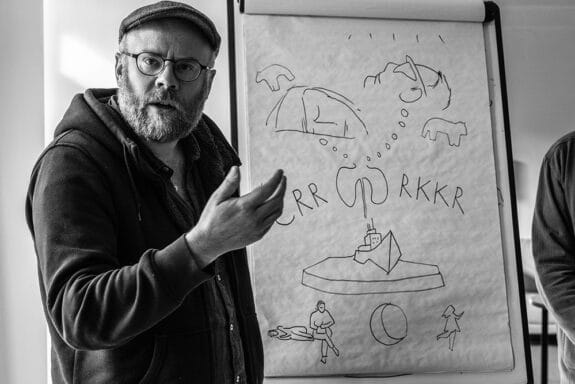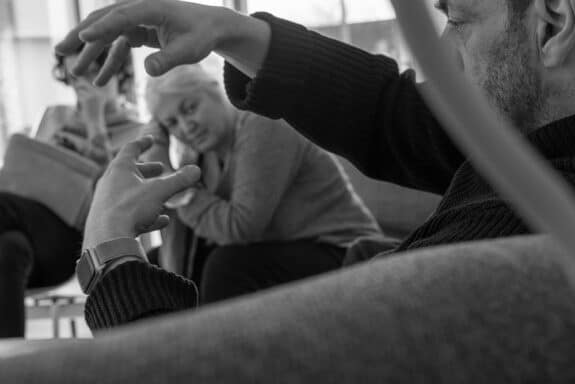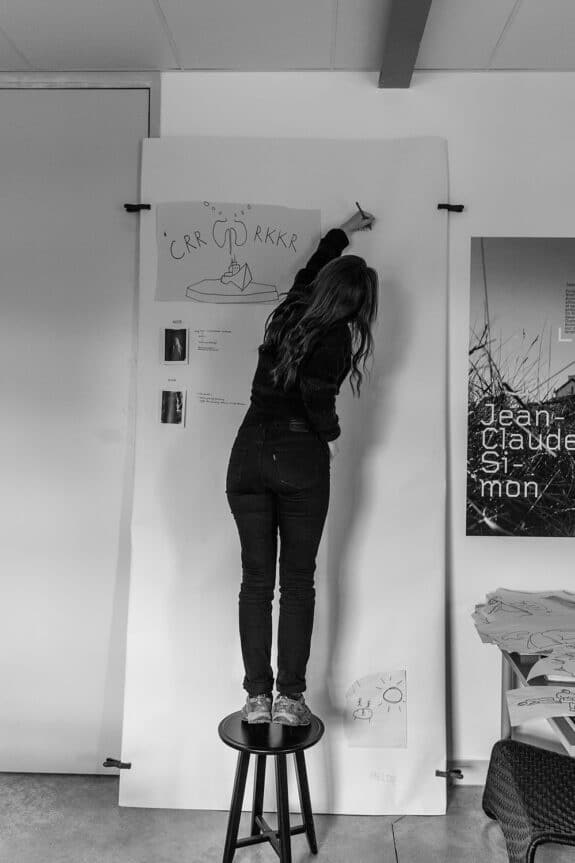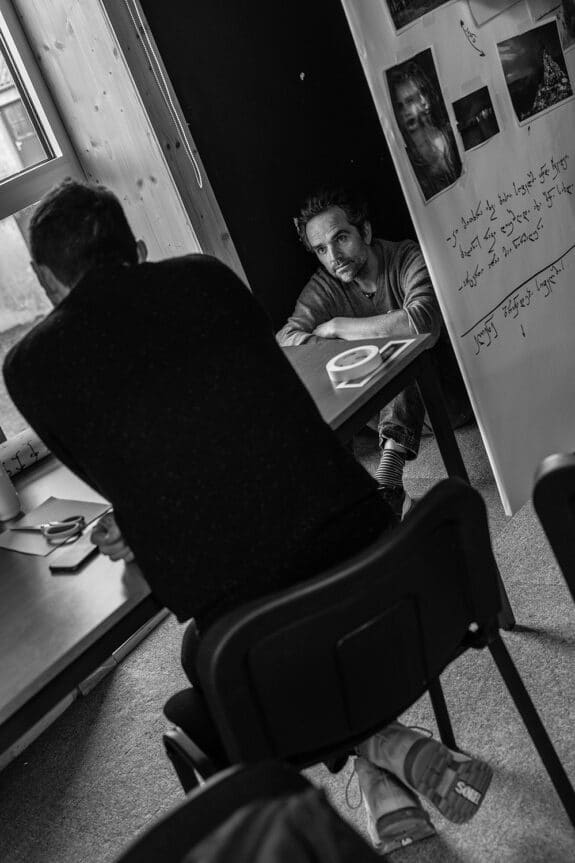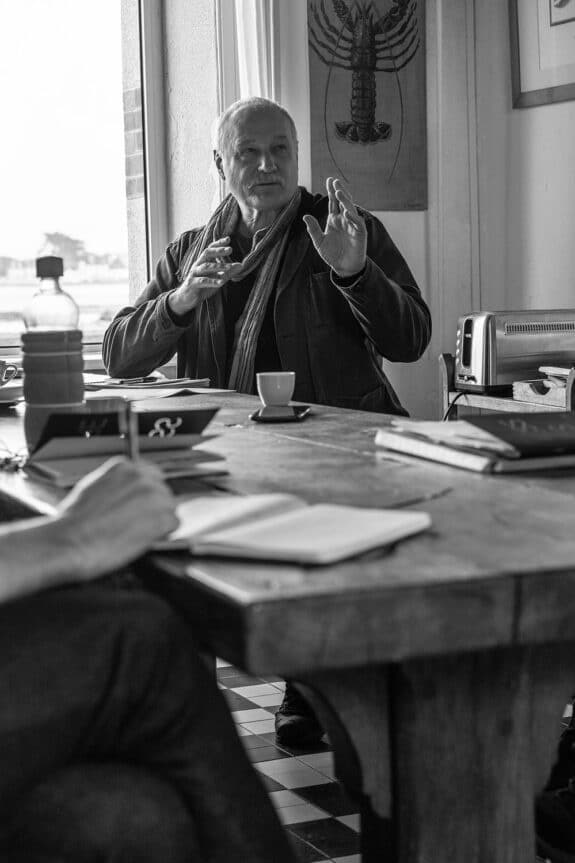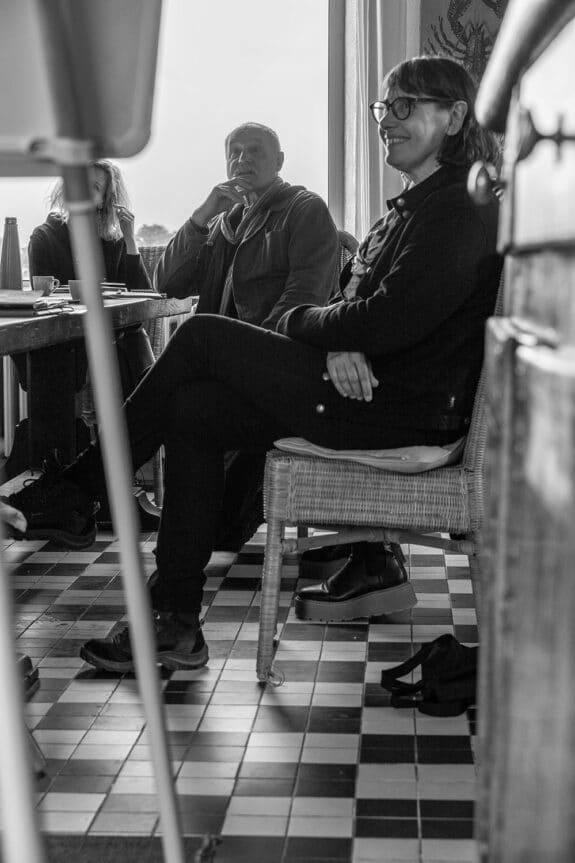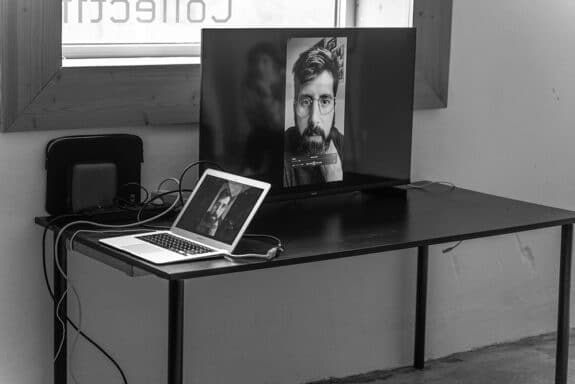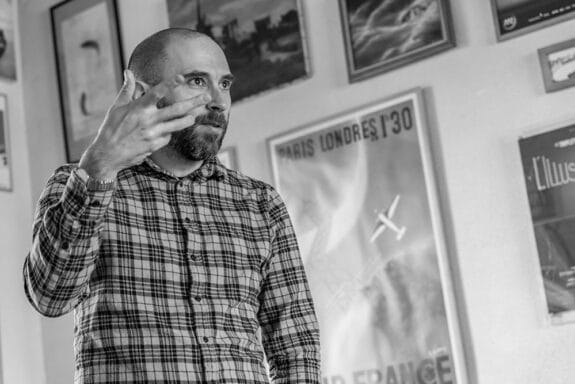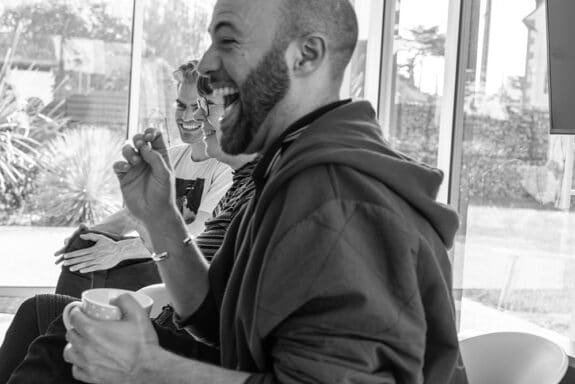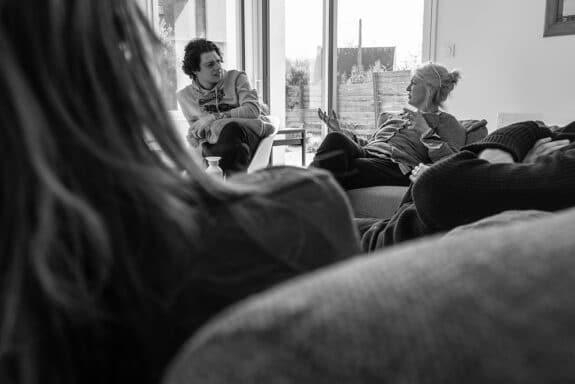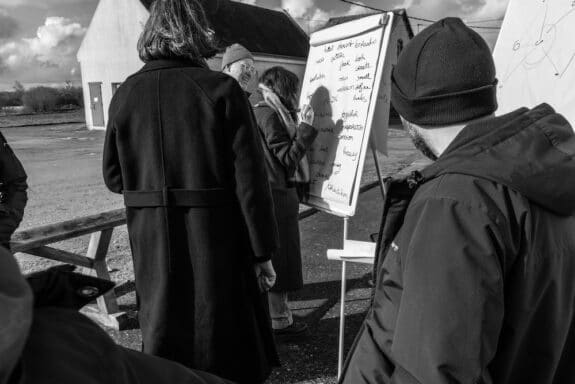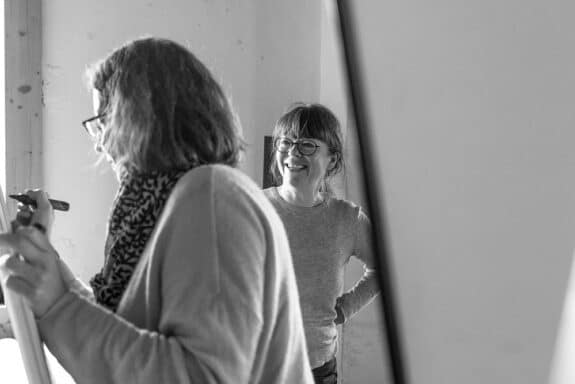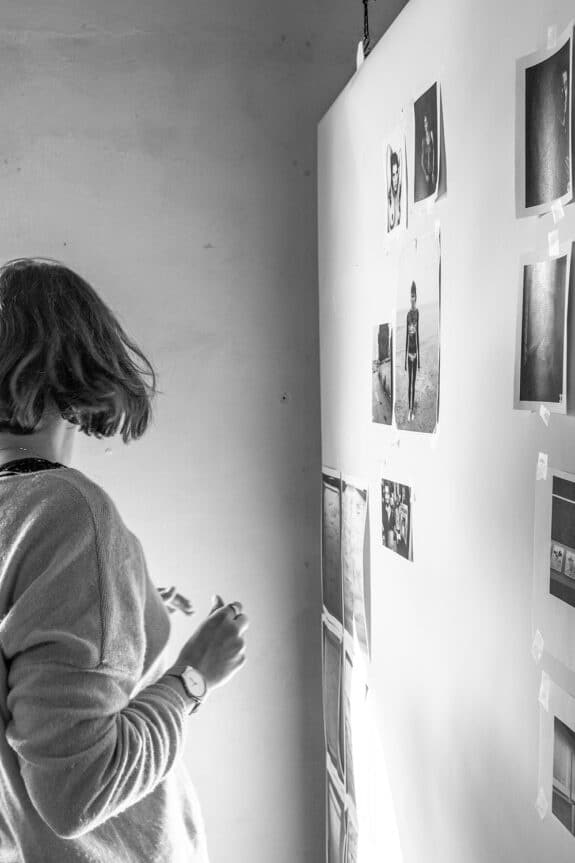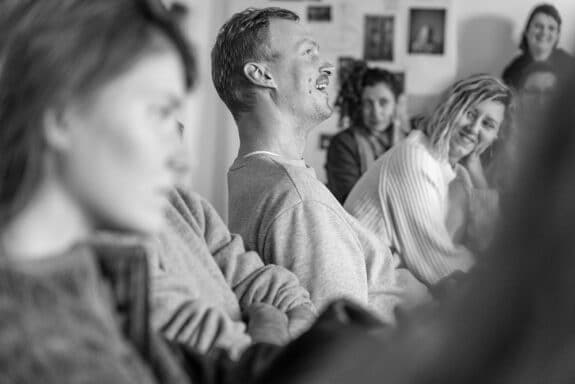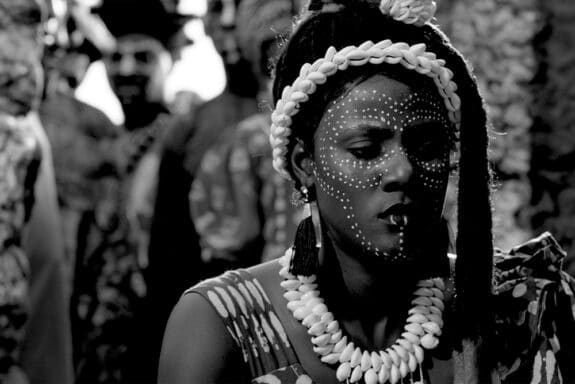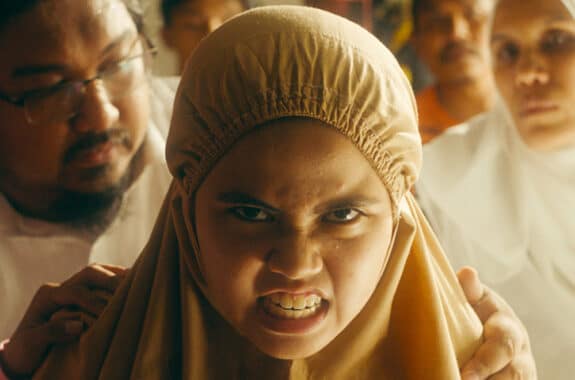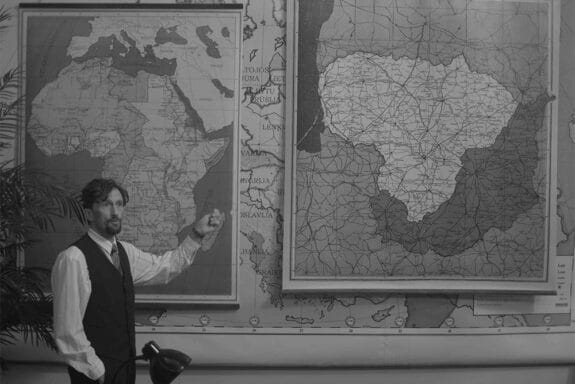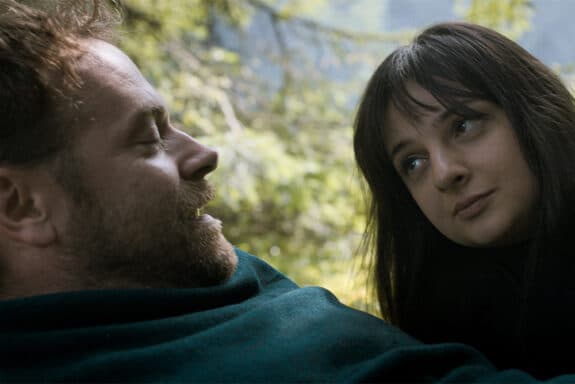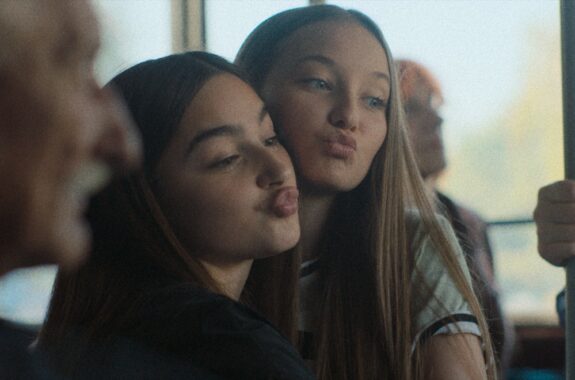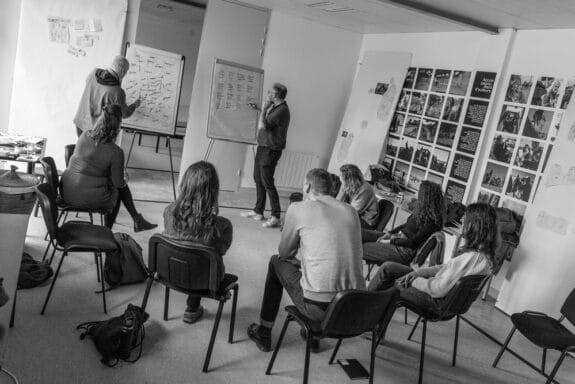
LIM | Less is More
The European feature film development programme for committed filmmakers in a changing world
Supported by Creative Europe – MEDIA Programme of the European Union, LIM | Less is More is led by Le Groupe Ouest (France), developed with Control N (Romania), Vlaams Audiovisueel Fonds – VAF (Belgium), and Krakow Festival Office – KBF (Poland), in partnership with the Norwegian Film Institute, Région Bretagne (France), Focal (Switzerland), MOIN Film Fund Hamburg Schleswig-Holstein (Germany), Fís Éireann/Screen Ireland, as well as Ffilm Cymru Wales and the Baltics Film Centres (Lithuanian Film Centre, Estonian Film Institute and National Film Centre of Latvia).
LIM is welcoming writers & directors from (and/or living in) the European Union, Eurimages Countries and non-EU countries participating in the Creative Europe Programme, as well as the United Kingdom*, applying with a fiction project at an early stage of development.
LIM is also open to candidates coming from theatre, documentary and visual arts.
Sixteen filmmakers, selected each year from all over the world, wanting to develop a feature film project with limitations in budget, film development and production structure. In addition, a selection of twelve Development angels, film professionals – creative producers, story-editors, development executives, commissioning editors… wishing to strengthen their skills in the development of feature film projects.
Limitations as a creative tool & a trigger for a more in-depth creative process
LIM | Less is More aims to help filmmakers, writers, producers and development professionals of the continent, fully integrate limitation as a creative tool and a trigger for a more in-depth creative process right from the start.
The Development Training Programme is open to 1st, 2nd or 3rd feature films. Sixteen writers or writer-directors and twelve emerging producers or development execs, called Development angels, are selected each year from all over Europe. Supervised by high-level script consultants from March to October, they attend three one-week workshops set in a rural village providing total immersion in an ecological retreat.
Before the third workshop, LIM MEET, a two-day Showcase Event is organised for participants to meet a wide scope of industry professionals (producers, co-producers, sales agents…) in order to test development strategies and potentially start future collaborations for each film.
Parallel to the main Training Programme, the annual organisation of online masterclasses on “LIM’s approaches and new tools in script development”, “the virtues of limitations and the impacts on creativity”, LIM organises Boosting Ideas workshops for all its European partners (film centers, regions…), training young talent in a solid elaboration and exploration phase prior to the writing phase. This helps gain time and substance when launching into the actual act of writing.
LIM Manifesto
LIM | Less is More has been set up to empower a generation of filmmakers determined to open new avenues and find new audiences by tackling new issues. Our motto is Igor Stravinsky’s “The more art is bound by limitations, the freer it is”.
We live in an age of over-consumption and deep ecological concern. Humanism is in jeopardy and society is struggling to generate meaning. Stories lie at the heart of what makes us human. Cinema is a powerful storytelling tool for today. Plugged into our dreams and nightmares it helps restore our ability to create meaning, for present and future generations.
LIM uses creative limitations as a tool. Its spirit and ambitions far exceed the straightforward business of restricting budgets. Self-imposed limitations help dig deep into character and emotion. They are a catalyst for ground-breaking film-experiences.
This way, clever limitation strategies help reveal a filmmaker’s singularity, giving his or her work a strong advantage in an overcrowded market. Indubitably, introducing limitations early in the writing process increases a film’s chances of being filmed rapidly.
The job of a screenwriter is to streamline apparent complexity. A well-understood limitation strategy triggers strong formal choices that can help make the game of a more singular imagination meaningful to all.
Who can apply?
LIM is open to filmmakers who have already written or made at least one short film selected in national and/or international festivals. It is also open to proven talent from the visual arts, documentary film and theatre. The working language during the workshops and for the rendering of texts is English.
LIM programme includes three one-week workshops between March and October, as well as a customised event, LIM MEET, held in Plouneour-Brignogan, which will benefit from the input of cinema industry professionals from all over Europe.
Projects are submitted online in a dedicated area when the Call for Projects is open.
LIM Partners





| Aneta Zagoórska | Poland | 2017 |
| Gabi Suciu | Romania | 2017 |
| Fred Prémel | Brittany, France | 2017 |
| Jelena Miseljic | Montenegro | 2017 |
| Hélène Mitjavile | France | 2018 |
| Glykeria Patramani | Greece | 2018 |
| Maaike Neve | Netherlands | 2018 |
| Ana Maria Pirvan | Romania | 2018 |
| Andraž Jerič | Slovenia | 2018 |
| Selin Karli | Turkey | 2018 |
| Jessica Loveland | United Kingdom (UK) | 2018 |
| Eamonn Cleary | Ireland | 2018 |
| Thomas Guentch | France | 2018 |
| Anthea Devotta | India | 2018 |
| Céline Pourveur | Belgium | 2019 |
| Aleksandra Kostina | Ukraine | 2019 |
| Joanna Solecka | Poland | 2019 |
| Héloïse Ballade-Noe | France | 2019 |
| Patricia Drati | Danemark | 2019 |
| Elena Stanisheva | Macedonia | 2019 |
| Susana Santos Rodrigues | Portugal | 2019 |
| Michal Oleszczyk | Poland | 2019 |
| Karla Lulic | Croatie | 2019 |
| Alki Politi | Greece | 2019 |
| Patrice Nezan | France | 2019 |
| Marina Gumzi | Slovenia | 2019 |
| Clarisse Goulart | Brazil | 2020 |
| Ilse Schooneknap | Belgium | 2020 |
| Aiste Dirziute | Lithuania | 2020 |
| Magnus Kristiansen | Norway | 2020 |
| Colette Quesson | France | 2020 |
| Eva Chillón | Spain | 2020 |
| Daniela Cölle | Slovakia | 2020 |
| Ciaran Charles | Ireland | 2020 |
| Tamara Babun | Croatia | 2020 |
| Anna Bielak | Poland | 2020 |
| Benjamin Taylor | Scotland | 2020 |
| Eva Zabezsinszkij | Hungary | 2020 |
| An Feyfer | Belgium | 2021 |
| Amélie Quéret | France | 2021 |
| Michal Reich | Czech Rep. | 2021 |
| Almudena Monzu | Spain | 2021 |
| Natalia Libet | Ukraine | 2021 |
| Alice Lusher | Wales | 2021 |
| Mariana Schneider | Germany | 2021 |
| Rafael Sampaio | Brazil | 2021 |
| Mar Vila Barcelo | Spain | 2021 |
| Marika Kozlovska | Latvia | 2021 |
| Sile Culley | Ireland | 2021 |
| Nadja Lapcevic | Serbia | 2021 |
| Andrès Bartos | Spain | 2022 |
| Diana Caravia | Romania | 2022 |
| Vitkorija Cook | Lithuania | 2022 |
| Mirna Everhard | Netherlands | 2022 |
| Cecilie Aspenes | Norway | 2022 |
| Harry Flöter | Germany | 2022 |
| Jules Reinartz | Luxembourg | 2022 |
| Aleksandra Zakharchenko | Ukraine | 2022 |
| Miriam Newman | Scotland | 2022 |
| Judith Lichtneckert | Switzerland | 2022 |
| Mira Staleva | Bulgaria | 2022 |
| Kirsi Saivosalmi |
The Netherlands & Finland | 2022 |
| Rebecca Anastasi | Malta | 2023 |
| Nina M. Barbosa Blad | Norway | 2023 |
| Marek Čermák | Czech Republic | 2023 |
| Penny Davies | Scotland, UK | 2023 |
| Paul FitzSimons | Ireland | 2023 |
| Clara Kiskanc | Switzerland | 2023 |
| Elena Martin | Romania | 2023 |
| Gaia Meucci-Astley | Italia & UK | 2023 |
| Nicola Ofoego | Ireland & England, UK | 2023 |
| Joyce Palmers | Flanders, Belgium | 2023 |
| Gemma Pascual | Catalonia, Spain | 2023 |
| Anja Wedell | Germany | 2023 |
| Cora Frischling | Germany | 2024 |
| Gwenfair Hawkins | Wales | 2024 |
| Norma Howard | Ireland | 2024 |
| Nicolaï Iarochenko | Brittany, France | 2024 |
| Aymeric Isnard | France | 2024 |
| Ilse Joye | Flanders, Belgium | 2024 |
| Annegret Kunath | Sweden | 2024 |
| Rhea Plangg | Switzerland | 2024 |
| Saffia Sage | Scotland | 2024 |
| Nevena Semova | Bulgaria | 2024 |
| Rodrigo Stoicheff | Norway | 2024 |
| Matthijs van der Veer | The Netherlands | 2024 |
